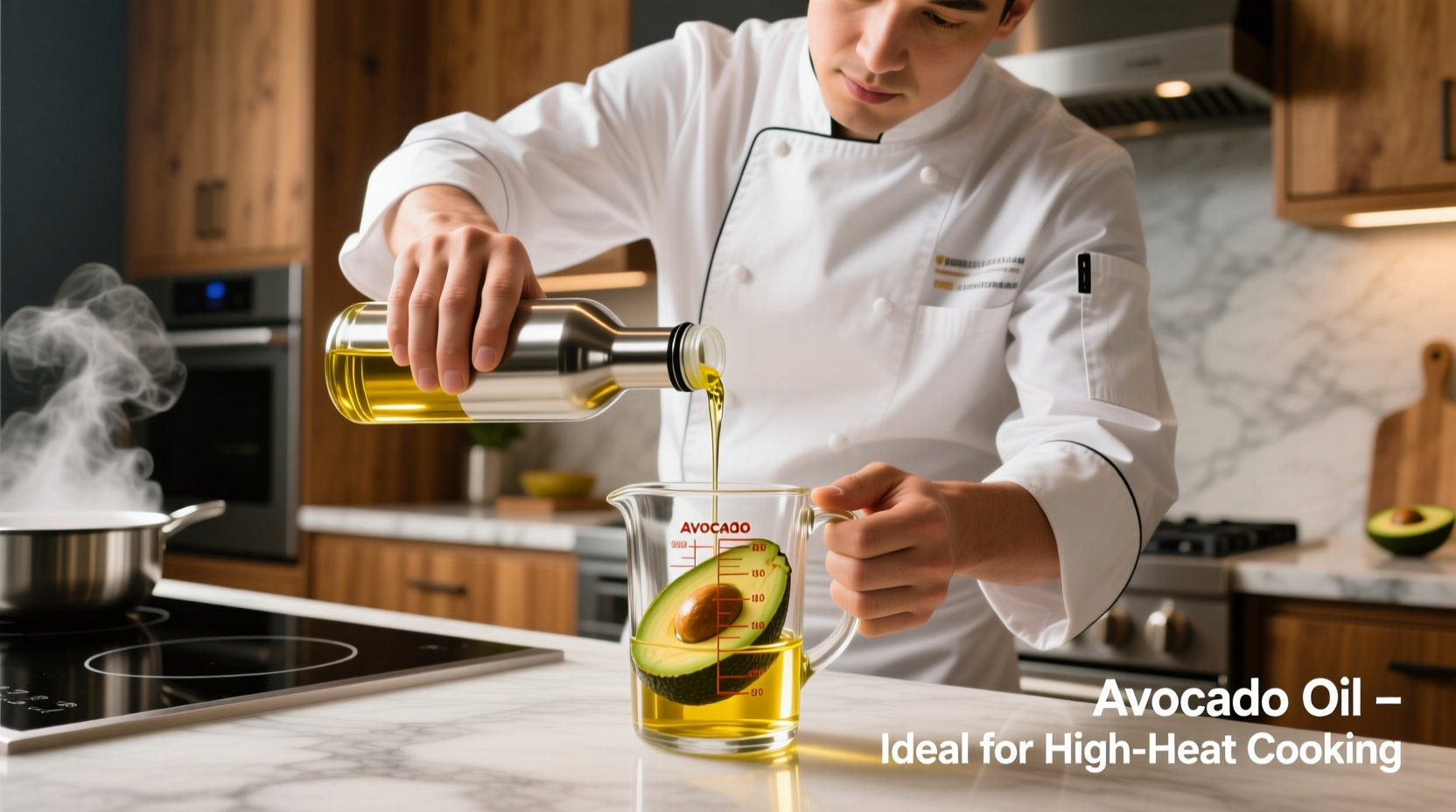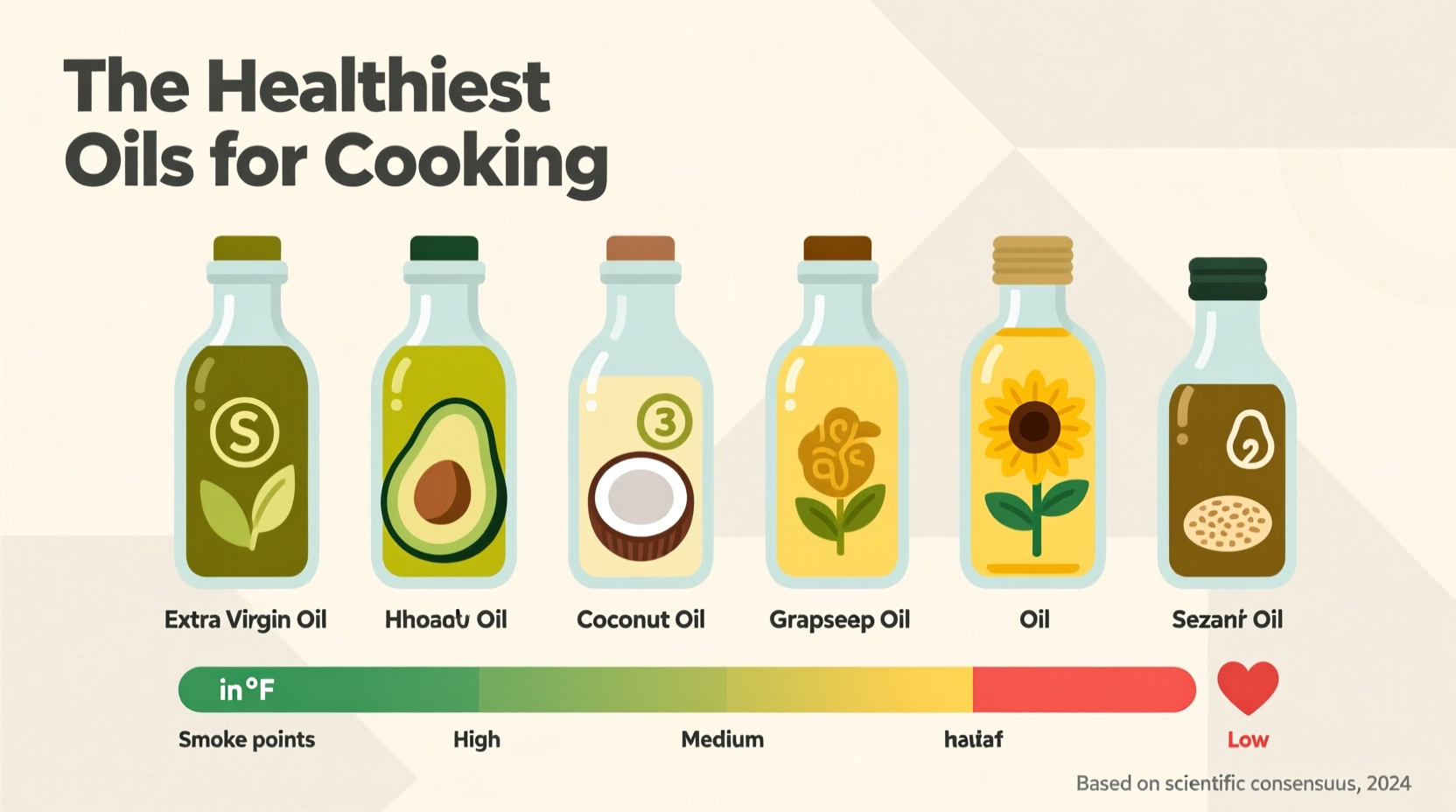Choosing the right cooking oil impacts more than just flavor—it affects heart health, inflammation levels, and long-term disease prevention. With conflicting advice flooding the internet, this guide cuts through the noise using current nutritional science to help you make evidence-based decisions for every cooking scenario.
Why Oil Selection Matters for Your Health
When heated beyond their smoke point, oils undergo chemical changes that create harmful compounds like aldehydes and free radicals. The American Heart Association confirms that replacing saturated fats with unsaturated oils reduces cardiovascular disease risk by up to 30%. But not all unsaturated oils perform equally under heat—understanding their molecular stability is crucial.
Key Factors Determining Oil Healthiness
Three scientific properties determine an oil's health impact during cooking:
Fatty Acid Composition
Oils rich in monounsaturated fats (like olive and avocado) remain stable when heated, while polyunsaturated oils (such as soybean and corn) oxidize more easily, creating inflammatory compounds. Harvard T.H. Chan School of Public Health emphasizes that monounsaturated fats improve cholesterol levels without the oxidation risks of polyunsaturated alternatives.
Smoke Point Thresholds
This critical temperature varies significantly between oils. Contrary to popular belief, extra virgin olive oil's smoke point (350-410°F) safely accommodates most sautéing and baking. Only deep-frying requires higher-temperature options. The USDA's FoodData Central provides verified smoke point measurements that debunk many industry myths.
Natural Antioxidant Content
Extra virgin olive oil contains polyphenols like oleocanthal that combat oxidation during heating. A 2020 Nutrients journal study demonstrated these compounds remain effective up to 400°F, making EVOO surprisingly resilient. Refined oils lose these protective elements during processing.
| Cooking Oil | Smoke Point (°F) | Monounsaturated Fat | Polyunsaturated Fat | Best Cooking Methods |
|---|---|---|---|---|
| Extra Virgin Olive Oil | 350-410°F | 73% | 11% | Sauteing, baking, dressings |
| Avocado Oil | 480-520°F | 70% | 13% | Grilling, searing, high-heat frying |
| High-Oleic Sunflower | 440-450°F | 80% | 4% | Stir-frying, roasting |
| Coconut Oil | 350°F | 6% | 2% | Low-heat baking (limited use) |
| Soybean Oil | 320°F | 24% | 61% | Not recommended for regular cooking |
Evolution of Cooking Oil Recommendations
Nutritional science has dramatically shifted our understanding of cooking oils over the past 50 years. In the 1970s, all fats were vilified, leading to hydrogenated vegetable oils that created dangerous trans fats. The 2006 FDA ban on artificial trans fats marked a turning point, with current research focusing on fat quality rather than quantity. The American College of Cardiology's 2023 update confirms that replacing saturated fats with unsaturated oils remains a cornerstone of heart disease prevention.
Context-Specific Oil Recommendations
No single oil works perfectly for all situations. Your cooking method determines the optimal choice:
Low-Temperature Cooking (Under 350°F)
Extra virgin olive oil shines for salad dressings, dips, and gentle sautéing. Its polyphenols provide anti-inflammatory benefits unmatched by refined alternatives. Choose cold-extracted, third-party certified EVOO to ensure quality.
Medium-Heat Cooking (350-400°F)
Refined avocado oil maintains stability while delivering neutral flavor for baking and oven roasting. Its high monounsaturated fat content (70%) prevents oxidation better than standard canola or vegetable oils.
High-Heat Methods (Above 400°F)
For searing meats or stir-frying, high-oleic sunflower or safflower oil provides exceptional heat resistance. These specially bred varieties contain 80% monounsaturated fat versus 20% in standard versions, dramatically improving thermal stability according to USDA research.
Debunking Common Oil Myths
Myth: Coconut oil is a "superfood" for all cooking
Reality: With 92% saturated fat, coconut oil raises LDL cholesterol more than vegetable oils. The American Heart Association specifically advises against regular coconut oil use for heart health.
Myth: All olive oil is the same
Reality: Light/refined olive oil lacks the polyphenols of extra virgin varieties. Always choose dark glass bottles with harvest dates for maximum freshness and nutrient retention.

Practical Buying and Storage Guide
Maximize oil quality with these evidence-based practices:
- Check harvest dates: Olive oil degrades within 18 months—choose bottles showing harvest or best-by dates
- Avoid clear containers: Light accelerates oxidation—opt for dark glass or opaque tins
- Store properly: Keep oils in cool, dark pantries—refrigeration can cause cloudiness in some varieties
- Buy small quantities: Purchase 16-32oz containers you'll use within 2 months for peak freshness
When Oil Quality Becomes Critical
Certain health conditions require special consideration:
- Cardiovascular disease: Prioritize extra virgin olive oil's polyphenols shown to improve endothelial function
- Diabetes management: Monounsaturated fats improve insulin sensitivity per Mayo Clinic research
- Inflammatory conditions: Avoid high-omega-6 oils like soybean that promote inflammation











 浙公网安备
33010002000092号
浙公网安备
33010002000092号 浙B2-20120091-4
浙B2-20120091-4